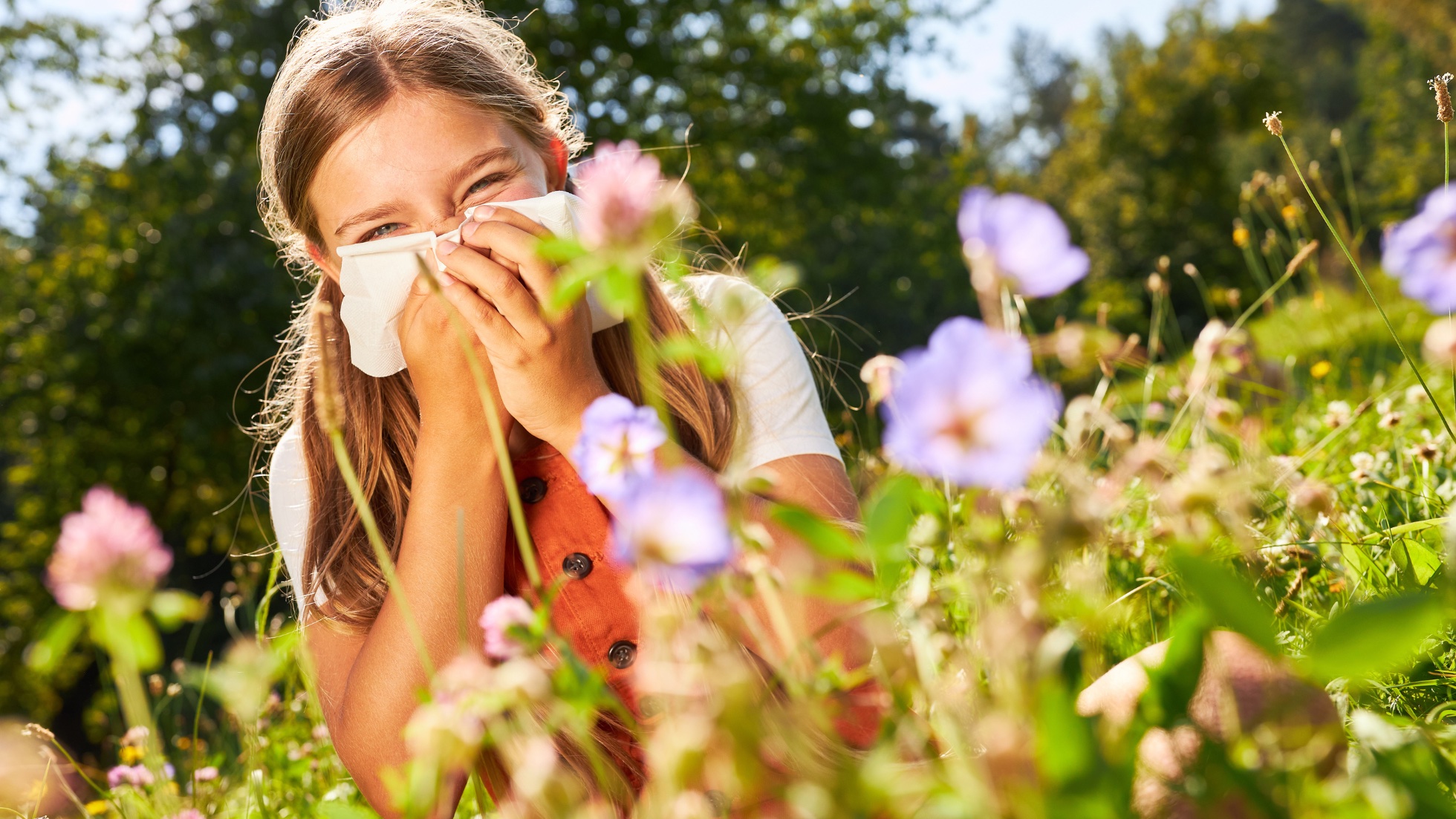Your Local Allergy and Hay Fever Clinic in Chippenham Book Now
Allergies and Hay Fever
Allergies are when the body reacts to something which is normally harmless. Examples include, pollen (hay fever), dust, animal fur or food. The reaction can range from being mild irritation, to a life threatening situation. If your reaction is severe and causes any breathing complications, you should speak to your GP urgently.
Hay fever is when the body reacts to tree and grass pollen at a particular time of the year. For most people this is during the spring and summer months (seasonal rhinitis), however for some, it can present all year round (often called allergic rhinitis). Usually the worst months are between late March and September. AllergyUK have an informative leaflet which can be downloaded here.
What are the symptoms of hay fever?
Each person with hay fever reacts slightly differently in terms of symptom profile and severity. The most common symptoms are:
- Itchy / watering / swollen eyes
- Itchy throat
- Sneezing / blocked / runny nose
- Headaches and blocked sinuses
- Tiredness
These symptoms become worse when the pollen count is high.
Self care for hay fever
- put Vaseline around your nostrils to trap pollen
- wear wraparound sunglasses to stop pollen getting into your eyes
- shower and change your clothes after you have been outside to wash pollen off
- stay indoors whenever possible
- keep windows and doors shut as much as possible
- vacuum regularly and dust with a damp cloth
- buy a pollen filter for the air vents in your car and a vacuum cleaner with a HEPA filter
- try to stay at home and avoid contact with other people if you have a high temperature or you do not feel well enough to do your normal activities
Treatment for hay fever
Treatments come in a variety of forms:
- Tablets and liquids
- Nasal sprays
- Eye drops
- Injection
Tablets and liquids
These are often antihistamines which work by relieving the symptoms of hay fever. They are often taken once daily and can be purchased from a pharmacy for most ages. This is often considered to be the first line treatment for hay fever as they are easy to take and work quickly, however for many patients, they do not provide adequate symptom relief and therefore additional second line treatments such as nasal sprays and eye drops should be considered.
Nasal Sprays
Nasal sprays come as either Antihistamines, Sodium Cromoglicate and Steroids. As per the tablets and liquids, antihistamine nasal sprays are good for immediate relief, however sodium cromoglicate and the steroid nasal sprays are designed for long term use. If tablets are not working, or are contraindicated, nasal sprays are often the preferred second line treatment especially for patients presenting with nasal symptoms such as sneezing or runny nose.
Steroid nasal sprays work best when they are initiated one to two weeks prior to your symptoms starting as they take time to work. Once working they provide excellent treatment to reduce the overall symptom profile. They can then be supplemented with oral antihistamines if breakthrough symptoms occur.
Our range of nasal sprays can either be prescribed, where required by one of our trained clinicians or purchased from the pharmacy (dependant on product licence).
Eye Drops
Allergy eye drops often contain sodium cromoglicate which works to reduce your bodies over reaction to the pollen. Eye drops are especially useful if you are suffering with eye symptoms such as watering, red or swollen eyes. They need to be used regularly for two weeks to begin to see a benefit and replaced after four weeks from the bottle being opened.
Treatment Plan
A personalised treatment plan using available tablets, sprays and drops, initiated prior to your expected symptoms will make a significant impact on your symptom profile.
Hay Fever Clinic
Our 30 minute clinic will look to review your symptom profile, your previous treatment options and make recommendations about your treatment regime for this year. The service is available all year, however we recommend that you visit us one to two months prior to your expected symptoms beginning.
The 30 minute consultation costs £45, but also includes a 10% discount on any hay fever medicines bought from the pharmacy during the year.
Book Hay Fever Clinic

